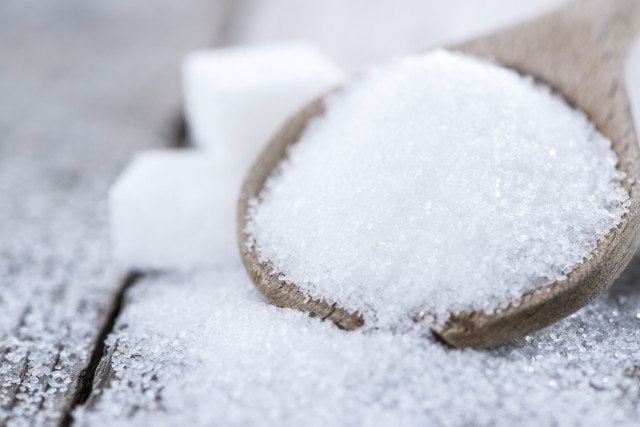Drinking sugar-sweetened beverages can suppress the hormone cortisol and stress responses in the brain, but diet beverages sweetened with aspartame do not have the same effect, according to a study published in the Endocrine Society’s Journal of Clinical Endocrinology & Metabolism.
“This is the first mechanistic evidence that high sugar – but not aspartame – consumption may relieve stress in humans,” said one of the study’s authors, Kevin D. Laugero, PhD, of the Western Human Nutrition Research Center of Agricultural Research Service and University of California, Davis.
“The concern is psychological or emotional stress could trigger the habitual overconsumption of sugar and amplify sugar’s detrimental health effects, including obesity.”
About 35% of adults and nearly 17% of children nationwide are obese, according to the Society’s Endocrine Facts & Figures report.
Sugary drinks such as soda and juice have been linked to this problem.
Half of the US population consumes sugar-sweetened drinks on any given day, according to the US Centers for Disease Control and Prevention.
Study design
The parallel-arm, double-masked diet intervention study examined the effects of consuming sugar- and aspartame-sweetened beverages on a group of 19 women between the ages of 18 and 40.
The researchers assigned eight women to consume aspartame-sweetened beverages, and 11 to drink sugar-sweetened beverages.
For a 12-day period, the women drank one of the assigned beverages at breakfast, lunch and dinner.
The participants were instructed not to consume other sugar-sweetened drinks, including fruit juice.
For 3.5 days prior to and after the study, participants consumed a standardized low-sugar diet and stayed at the UC Davis Clinical and Translational Science Center’s Clinical Research Center.
Before and after the 12-day experimental period, participants underwent functional magnetic resonance imaging screenings after performing a psychological stress test to gauge the brain’s stress response.
They also provided saliva samples to measure levels of cortisol – a hormone made by the adrenal glands that typically increases in response to stress.
Sugar affects stress response
Researchers found that women who drank sugar-sweetened beverages during the study had a diminished cortisol response to the stress test from their baseline, compared to women who were assigned to consume aspartame-sweetened beverages.
In addition, participants who consumed sugar-sweetened beverages exhibited more activity in the hippocampus under stress– a part of the brain that is involved in memory and is sensitive to stress – than those who drank aspartame-sweetened beverages.
Activity in the hippocampus is thought to play a primary role in controlling the cortisol stress response.
“Thus, our results suggest that sugar, but not aspartame, consumption inhibits the cortisol stress response by altering the way the hippocampus responds to stress,” said another author Matthew S. Tryon.
These findings offer new clues that may help explain how consumption of sugar positively reinforces the temptation to eat comfort food when a person is stressed, Laugero said.
“The results also suggest differences in dietary habits may explain why some people underreact to stressful situations and others overreact,” he said.
Excessive reliance on sugar may abnormally blunt the ability to mount a stress response.
Research has linked over- and under-reactivity in neural and endocrine stress systems to poor mental and physical health.










